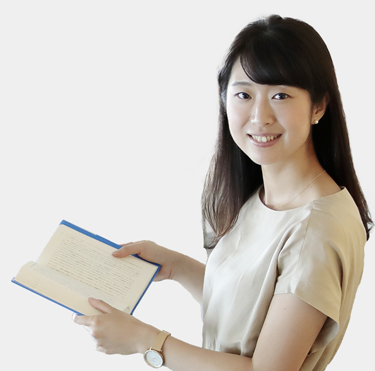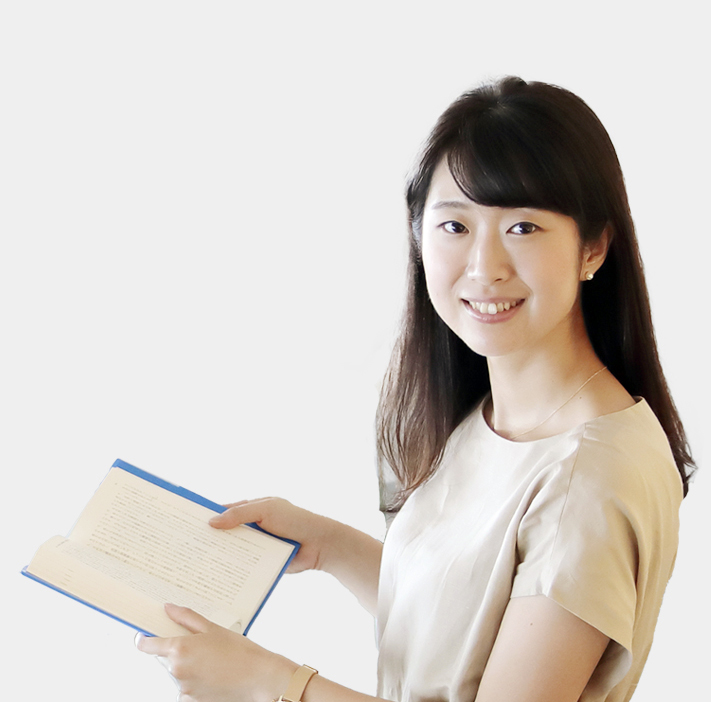05

Interview with Associate Professor Mai Kikumori of
College of Business Administration
This interview was conducted on July 31, 2020.

The future of university classes
What impact has the COVID-19 pandemic had on your classes?
For my classes with large numbers of students, I am using a combination of on-demand delivery and assignments.
But I had to spend a considerable amount of time preparing because it is hard to design classes when you can’t see how your students are reacting. To keep my students motivated and engaged, I have divided my classes into three short 20-minute videos.
Although I am live streaming my small-group seminars, I have been able to teach these classes in a similar style to the in-person classes I was teaching before. The chat function makes it easy to solicit opinions from the students.
This has made me realize once again that interactive communication is essential for university-level lectures.
It sounds like your transition to online teaching was relatively smooth.
Did you face any challenges?
When you are teaching in the classroom, students can talk to each other and the instructor can provide individual guidance to students in between the sections of your lecture, but it is difficult to do this online.
When there are many students in an online, you lose that ability to engage in informal interactions like speaking to an individual student. I found this challenging. Even informal chats are an important form of social interaction, and this is one of the things that makes going to university enjoyable for students.
Going forward, it looks like we will adopt a combination of in-person and online classes, so I think we will need to create mechanisms that encourage student interaction in those types of classes. I want to be able to design more effective classes that allow me to solicit feedback from my students.
What impact has the pandemic had on your research?
With the temporary stoppage of classes in early April, I was able to take some time to delve deeper into some research that was still in the conceptual phase.
Also, this pandemic afforded me the chance to rethink what it is that makes university education meaningful. Universities are places where you can create group wisdom by harnessing a variety of ideas and knowledge.
We educators need to reevaluate the current situation as we consider how to provide instruction that aids this process in an online environment and how to strike a balance between the online and the offline.
I would like to see our faculty think deeper about the significance of education as well as the roles they are expected to play and their uniqueness.
Impacts on consumer behavior
As an expert on consumer behavior, what impact do you think the pandemic has had in this area?
Looking at how society has changed during the COVID-19 pandemic, one thing you can see is how much more time people are spending on social media.
We can’t meet people in person easily, but the fact is that humans cannot survive without interaction with others. This is why people have naturally shifted to social media to communicate with others.
We have also seen a surge in e-commerce due to the impact of the stay-at-home request. In recent years, online sales of music and e-books have grown, but that growth did not extend to the food industry.
Now, due to the coronavirus, we have seen an increase in the online sale of food. The growth of e-commerce into new sectors and changes in how we purchase goods are intriguing topics that are garnering attention.

We have definitely been spending much more time on the internet,
but what concerns do you have about increased social media usage?
We find ourselves in a situation where people are more likely to believe information on social media. When you look at social media, you are entirely absorbed, aren’t you? This means you end up believing everything you see on social media and unconsciously deeming it worthy of acceptance without question.
Because we only follow people we like on social media, we trust the information they post, which makes it easier to accept that information without questioning it.
Also, as your trust in the information on your social media feed grows, you are more likely to distrust or be skeptical of information, like online reviews, posted by people you don’t know.
This trend is particularly prevalent among young people in their 20s. Young people tend to show interest in the things that YouTubers and Instagrammers recommend, so more people start to think those products must be good.
This is not necessarily bad, but it is important to think for yourself when you are using social media. You have to verify the source of the information and remember to view it from multiple angles.
So, we need to exercise caution to ensure that we are not unconditionally believing in the information coming from the accounts we follow?
Yes, that’s correct. Also, it is very important for social media users to have control over their own minds.
When you are looking at posts on Instagram, for example, it may start to seem like everyone else is leading exciting lives, and you might get jealous or anxious when you compare yourself to other people.
What you see on social media is just one facet of a person’s life; it’s not everything. If you look at social media posts without thinking, you can end up believing them completely.
Social media is a tool that makes things appear more attractive than in real life. Even if information seems believable, you need to learn to take a step back and calmly assess its veracity.
It seems that companies selling products will need to change their behavior in line with changes in consumer behavior.
Social media has made it easier for companies to connect directly with consumers. They can create communities around brands and publicize those brands by having community members spread information on social media.
I think companies have recognized the power of social media as a communication medium for marketing. Trends among the youth change at a dizzying pace and their tastes have grown more diverse, so companies cannot treat them as if they were a monolithic group.
I think the issue for companies is to determine how they can make their products evoke an emotional response and ensure that, among the numerous products in the market, the unique features of their products mesh with the demands of young consumers. Companies will need to keep constant track of trends among the youth.
What can we do right now?
What message do you have for students at this point in time?
What I want to stress most is that you need to take care of yourself and give top priority to your health. As adults, I want students to be aware that they must take responsibility for their actions to protect their own health and the health of those around them.
Although survival is our base instinct, I also think it is very important for students to adapt their environment. In addition to the coronavirus, there are many changes afoot, including the advancement of AI and robots and climate change, as evidenced by the increasing frequency of natural disasters.
I hope students will maintain an awareness of how they must adapt to this ever-changing environment.
What actions should students take to adapt to their environment?
You need to think about what you can do in response to changes in society. My motto is “crisis breeds opportunity.” Crises are when humans question their values.
Precisely because we find ourselves at a time when existing frameworks and ways of thinking about lifestyles, work styles and other factors are on the verge of change, I think this affords us with the opportunity to change things and change the world.
I would like students to think about what needs to be done to make the world a better place and determine how they can contribute to the process of positive change. I think students should take this opportunity to contemplate things like work styles and how they can give something back to society.
How would you like students to spend their time at university?
I would like to see students dedicate themselves to research. I am not just talking about academic research, but the entire process of posing a problem, thinking about possible solutions to that problem, then finding an answer.
Ritsumeikan University provides many opportunities for students to experience this process, and I am certain this will prove useful in the working world after students graduate. There are many programs designed to foster these skills, so students should make effective use of their ties with the faculty to open new doors to learning.
Message
Profile
Associate Professor Mai Kikumori
College: College of Business Administration
Areas of expertise: Marketing. consumer behavior, social interaction, electronic word of mouth
 MORE INFO
MORE INFO
Other articles





